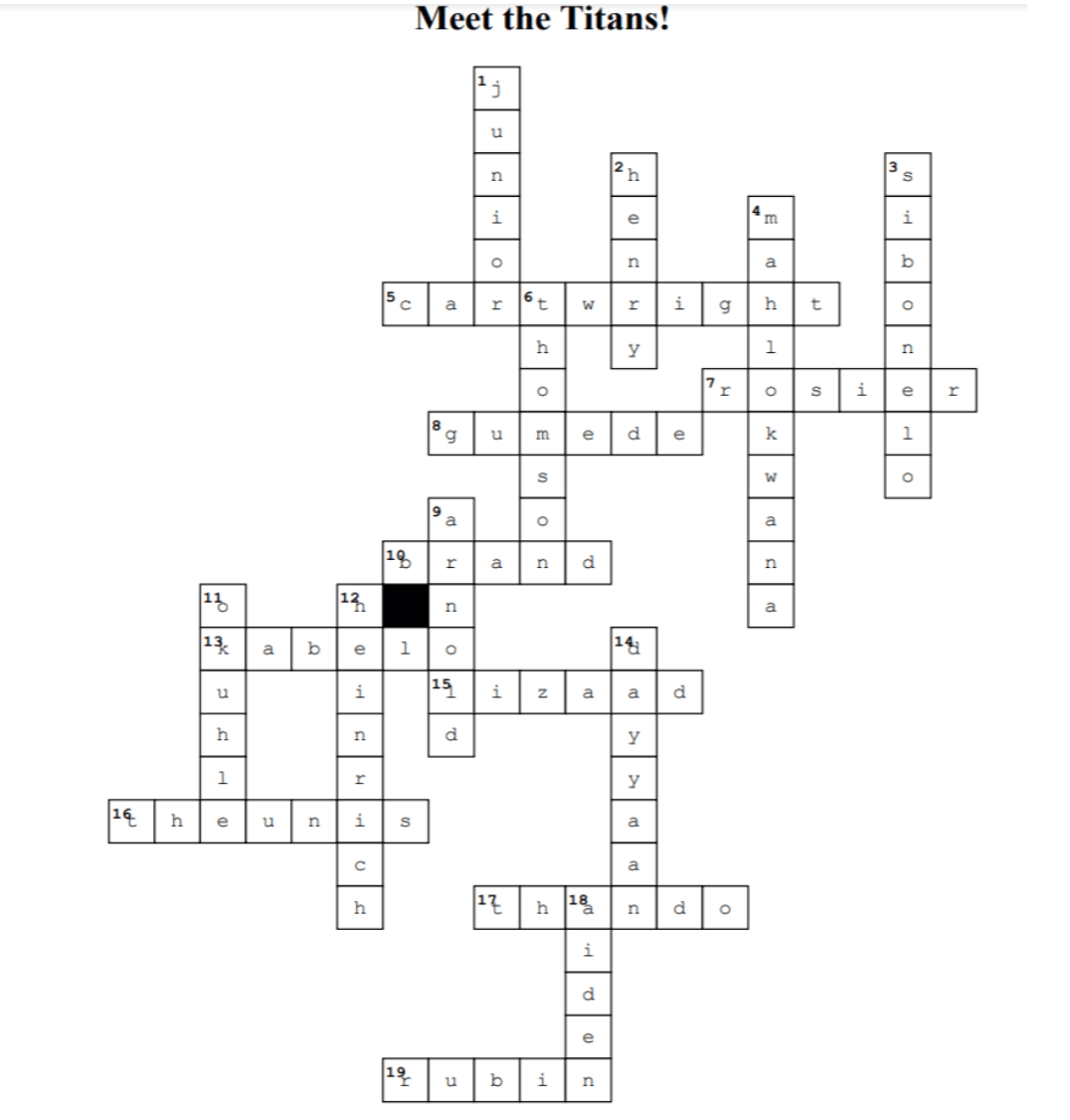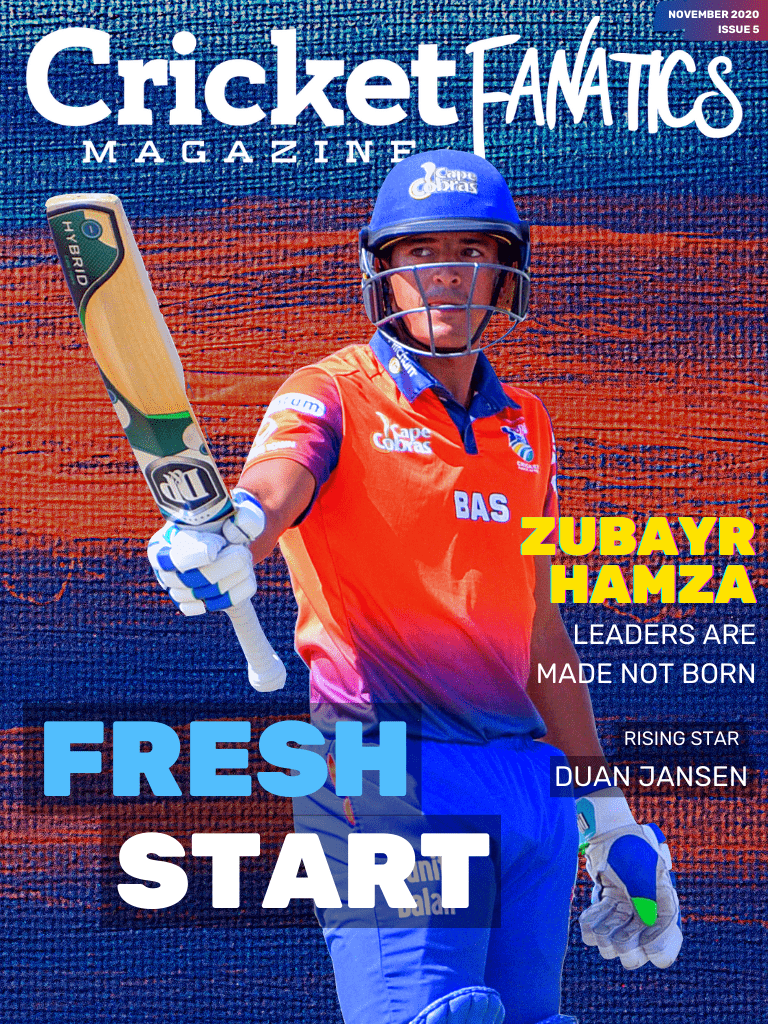
Table of Contents
EDITOR'S NOTE
PRIORITISE VISION 2023
Khalid Mohidin
Founder and Editor - Cricket Fanatics Magazine
The new season has started. The shakeup at Cricket South Africa, which saw the resignations of key members of the board and the president and the vice-president, momentarily sucked the life and hope out of everyone who loves this game.
Since then, an interim board has been elected. They have been backed to make an impactful change and lay a foundation for the way cricket will run in this country.
Fans even had to endure the unbearable thought of the Proteas being banned from international cricket.
But then came the saving grace amongst all this turmoil. CSA announced the return of competitive cricket – International, Domestic and Provincial.
It’s out with the old and in with the new, as South African cricket finds itself in a rebuilding phase at all levels. This is largely due to the retirements of key figures in the national setup as well as at the Domestic and Provincial level.
The new national convenor of selectors, Victor Mpitsang, needs to decide on the way forward, especially with a bumper-to-bumper South African cricket season ahead.
Will Mpitsang, his panel, Mark Boucher and his staff, decide that winning the T20I and ODI series against England is paramount and select sides to achieve this immediate goal?
Or will they take a risk by selecting teams with the 2021, 2022 T20 World Cups and 2023 50-over World Cup in mind?
With the current Test championship almost impossible to win, will they pick a Test side for the festive-season series against Sri Lanka, that can gain the necessary international experience with an eye on winning the next Test championship (2021-2023)?
Or will they play it safe with their selection and trust age over youth to serve the immediate goal of winning every game remaining?
If it's future success that they will be building towards, it will mean trusting the next generation of talent who can compete at the top level for the next 5-10 years, rather than selecting players who fill a short-term gap and are reaching the end of their careers.
The Brains Trust need to make that decision on what is the best option for the future of the sport in this country.
Some franchises have shown their belief in their young players, with the Knights, Dolphins and Cobras all picking captains under the age of 25, rather than older options in the squad. It shows that their trust lies with youthful exuberance.
This issue dives into the return to cricket after Covid-19 restrictions were lifted, and gives us a peek into the new era of South African cricket.
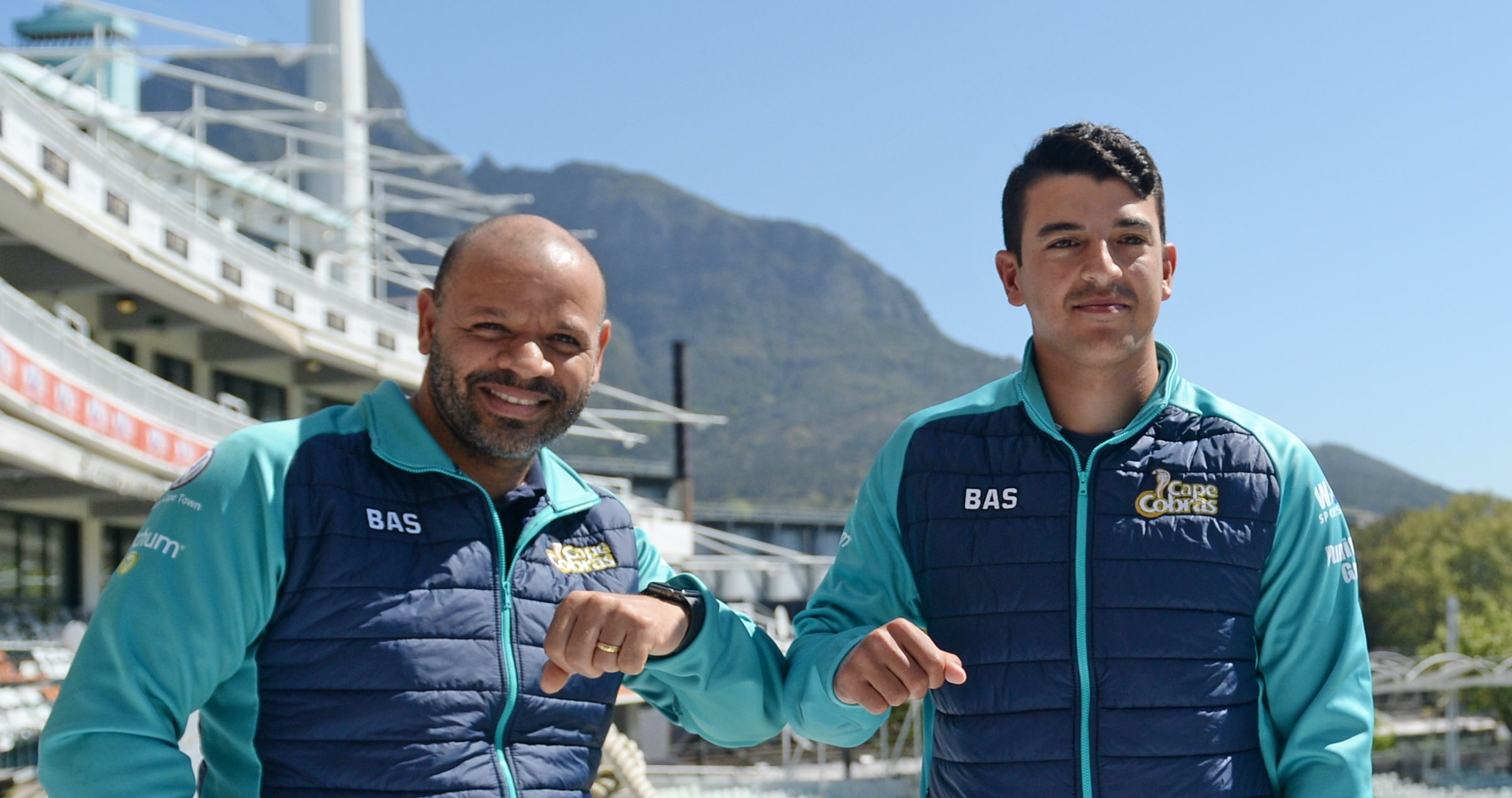
Fresh start: “Leaders are made, not born”
By Marc Jacobson
Cricket in South African is turning over a new leaf.
With the commencement of the new season, so too is Zubayr Hamza, who has been entrusted with leading the Cape Cobras as captain. A role which could further accelerate his career.
There is no doubt that he would be able to inspire, influence and ignite the players around him simply through the grit and determination he has displayed as a player and personality throughout his career thus far, both on and off the field.
As the quote goes by American Football coach Vince Lombardi: “Leaders are made, they are not born. They are made by hard effort, which is the price which all of us must pay to achieve any goal that is worthwhile.”
This statement speaks volumes of Hamza’s character in terms of his captaincy, leadership, the impact he can make to the broader context of South African cricket and aspiring youngsters in the sport.
Hamza last year became the 100th player to be capped by the Proteas, which righteously and fittingly tags him as “Mr. 100” and this centurial figure could bear testament to what he had persevered through as a player – giving his 100 per cent all whenever he has been tasked to do so.
He made his proud debut at the beginning of last year against Pakistan and had since earned four more Test caps, the last of which came against England at the start of the year, but it wasn’t all sunshine and rainbows for the astute player.
“I had a bit of a tough stint against England, but I take the good with the bad and that was all in the past. I’m trying to focus on where I’m at in the present,” Hamza told Cricket Fanatics Magazine.
“I felt good for the majority of the time I was part of the Proteas camp, maybe until the second game [against England], the new year’s Test, where I suppose I wanted to do well and when it didn’t go my way, I kind of got frustrated.”
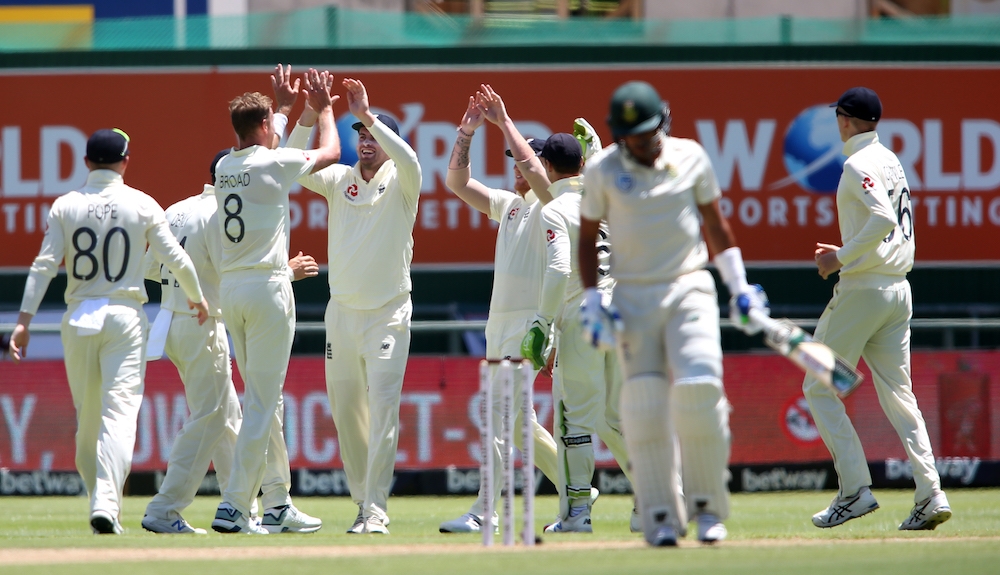
Hamza only managed to score five and 18 in those two respective innings at Newlands at the turn of the New Year, so his 2020 season did not get off to the perkiest of starts.
To add insult to injury, he only scored 10 and two in the next Test match at St. George’s, which indirectly led to his dropping from the side.
Nonetheless, Hamza refused to let his guard down and has certainly come out as a better player for it.
“I forced my issues with a lot of things in terms of the game itself and the challenges that come along with it,” he added.
“I was playing against one of the best teams in the world so I didn’t see it as a negative experience and although I didn’t do too great, I was able to take the positives out of the experience.
“If I had to go through it again, with more understanding about everything, I would do it in a more efficient or better way,” he optimistically said.
Rather than reeling from his dropping and his below-par performances, Hamza chose to rather focus on how the experience had garnered his mental state of the game which, at that point, was more important for him. He picked up his bat and soldiered on.
The mere mettle he displayed was telling, especially being a young, relatively inexperienced player still trying to find his way in the local cricketing landscape.
The 25-year-old has had to take a more unconventional route than most to reach the top, which means his destiny had purely been in his own hands for a large majority of his career.
This builds excitement. A player of his age, and one who has overcome a lot, could lead a resurgence in the Cobras side, much like Siya Kolisi did for the Springboks when he took over their captaincy two years before winning the 2019 Rugby World Cup.
A player who has rolled through the rough knows what it’s like to struggle and for a captain or a leader to have gone through this is a vital component for pulling a team together when they’re in that dark place.
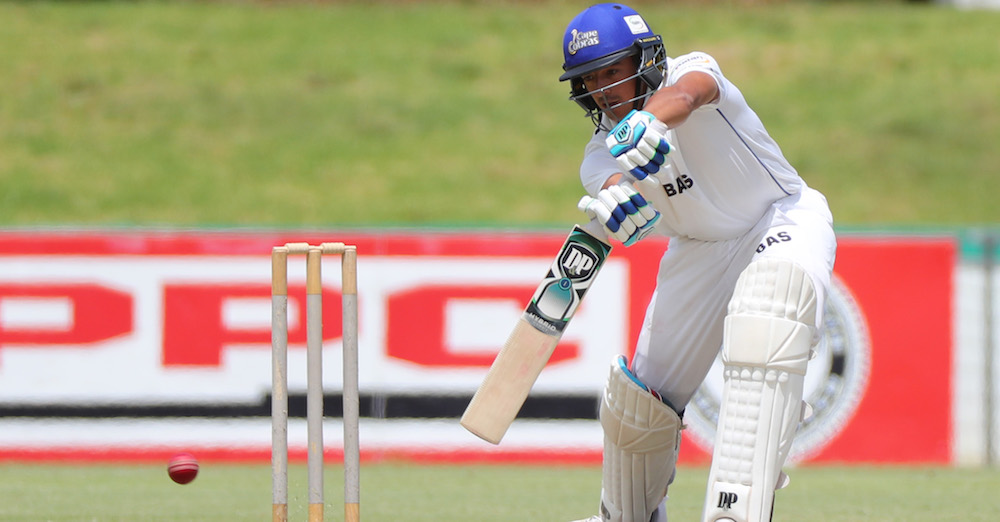
It wouldn’t be the first time that the Capetonian has had to beat his way through uncertainty and cobwebs during his young career.
With a new season now starting afresh and Hamza taking the reins at the Cobras, he’s not done yet.
“I’m feeling good and excited for the season ahead and I’m excited about the team as well. I’m sure we’re going to be very competitive," he stated confidently.
“I want to focus on doing well with the Cobras and put in consistent performances and hopefully earn an opportunity at the next level.
“When that time comes… is only up to me to decide.”
As the previous quote suggests, Hamza was adamant that, after years of paving his path, his circumstance will always remain in his grip, which is a trusting trait for a captain.
And although having experienced various challenges while being a part of the Proteas set-up, he added that it was a very fruitful exploit.
Hamza had been forced to take control of his career at every crease up until where he is today, and remains in no different scenario at this point of his calling.
To get ahead in the sport, at a young age, Hamza opted to play club cricket at Primrose Cricket Club throughout most of his school career.
“Playing club cricket was the foundation from which I built myself up as a cricketer. The experiences, lessons and toughness I learned at a club level I wasn't able to experience in school cricket, or university cricket either," he explained.
“Every Saturday I would play with guys 10, 12 or 15 years older than me so in that regard I was able to learn a lot of things very quickly.”
As he progressed into the latter years of his school career, where he attended Rondebosch Boys’ High, club cricket began taking a back burner in terms of time commitment.
“If I had a week off or a bye, I would make myself available for the club. But playing for my school sides kind of took away a lot of time I had to play for my club.”
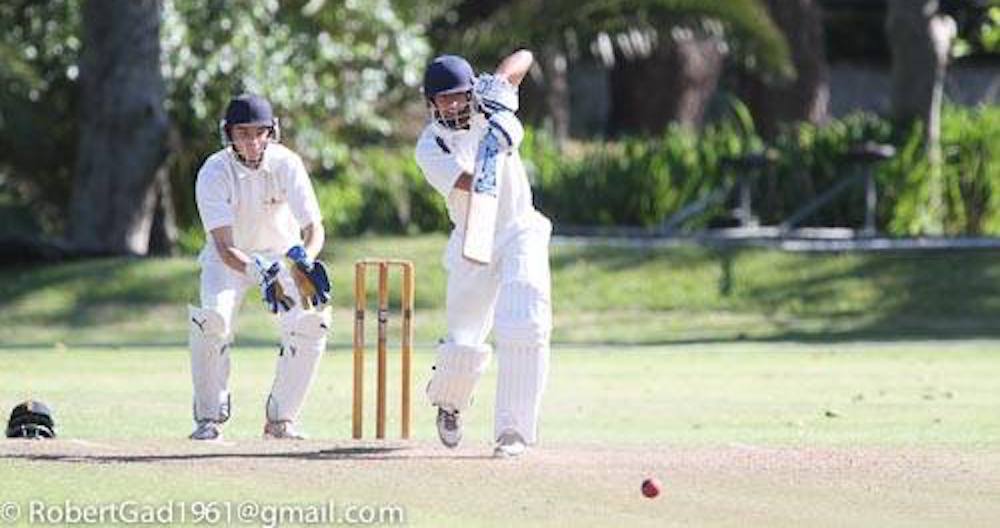
Hamza was afforded the opportunity to study BCom Accounting at the University of Western Cape since 2016 while representing their cricket team. This continued to nurture his on-field talents in more ways than he initially expected.
“I was allowed to study while being given access to their top-quality facilities,” he said.
“There, I was able to play with guys roughly the same age as me, and who are all on the same path as me in terms of their passion for cricket and their extra drive to achieve a lot in our academics.
“That’s been a unifying point for me in UWC cricket and it’s been awesome to play in certain tournaments for them such as in the USSA [Cricket Week] and Varsity Cup.
“Those were all good experiences that gave me a platform to showcase my skills at a club-like level.”
Although having felt somewhat averted after not making the world champion SA U19 side of 2014, Hamza felt as though it served as a blessing in disguise.
“I believe that things happen for a reason and while those guys were away there was an opportunity for me to play in the Western Province men’s side,” he reflected.
“I was fortunate enough to be given that opportunity and I rolled on with it from there. I learned as much as I could and I had a few solid seasons with them.”
Fortunately for Hamza, his spell with WP granted him better opportunities of being recognised in semi-pro and franchise cricket.
“I got to a point where I did well in semi-pro cricket and I got an opportunity in the franchise side (Cobras) but unfortunately it didn’t go my way in the first season and I got dropped.”
That’s when his tenacity, courage and perseverance as a cricketer resurfaced so that he was able to bounce back from any lost momentum.
“I went back and played as much club cricket as possible where I would rock up on a Saturday with not just my expectations to perform, but everyone else's around me, too.
“It was as if I was the pro cricketer and I had to perform. I feel like that was part of the game – that sort of pressure where people expect you to perform and if you are not going to put that pressure on yourself then you won’t learn from that experience, in my opinion.
“I want to do well every time I step out on to the field so there’s bound to be pressure in terms of my expectations and me being hard on myself.”
Hamza, who was inspired most by Hashim Amla and Sachin Tendulkar when growing up, noted that the biggest challenges for most aspiring cricketers are to build the necessary self-belief in which to excel.
“You never know whether you’re able to do it, unless you do it [at least] once and then remember how to do it afterwards," he said.
“It’s like one day you don’t know how to drive a car, but then you practice and after that, you’re able to drive for the rest of your life.
“In a similar principle, if I prove that I can perform at a certain level then I would hopefully continue doing that, and not just do it that one time.”
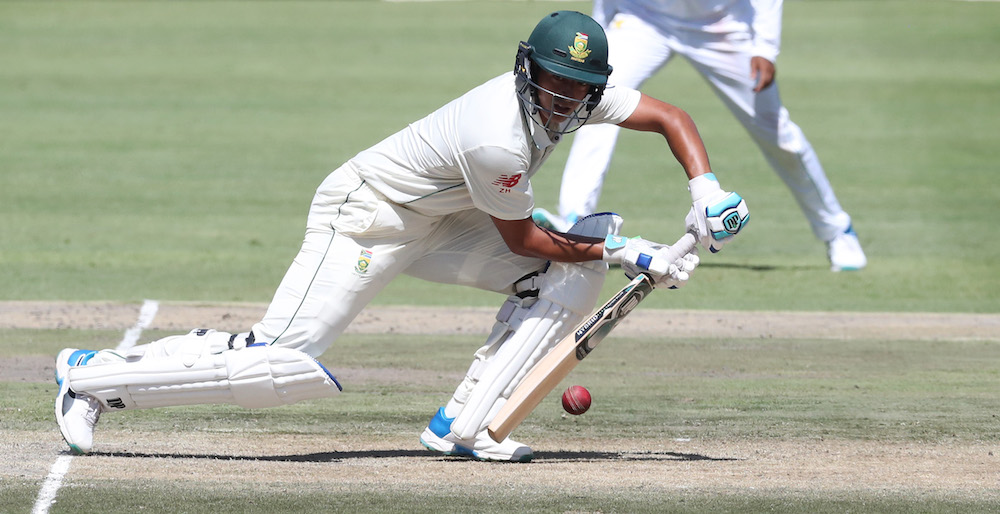
Self-belief, with Hamza a perfect testament to it, was sometimes all he could hold on to during his tenure as a player.
A player with enough self-belief would rightly be able to instil that into the players, and even coaches or mentors, around him.
Belief is the most important stepping stone to taking action and that is just what a team needs in their leader.
Throughout his young spell, Hamza had played under various captains, such as Justin Ontong and most recently Dane Piedt, as well as Faf du Plessis in the national side. He singled out each leader as a figure that brought something different to the table.
“You get to learn a lot from those guys who have had many years of experience under their belts. Each of them kind of bring a different flavour and leadership style to the team and the way they influence the camp.
"I’ve kind of taken out small parts from everyone and I enjoyed playing under all of them, to be fair.”
As far as stats and performances go, Hamza too has lived up to the task.
Specialising more in the red-ball format of the game, Hamza boasts an esteemed first-class average of 50.41 for the Cobras in his allotted 36 innings.
For Western Province, he has scored a brilliant average of 54.85 in 51 innings, with a high score of 202 not out which he achieved against Namibia in 2014, just his first year out of school.
Two years later, he was nominated as the Provincial Three Day Cup Player of the Year.
As a result of consistent performances, he has become a regular for the Cobras and enjoyed an exemplary season in 2017/18 when he scored a stellar 828 runs at an average of 69.00 in the then Sunfoil Series.
Two seasons ago, before getting his first Test call-up, he scored a fine average of 53.09 in that year’s 4-Day Franchise Series.
This was the fifth-highest median of all the batsmen who had played in six or more matches during the competition.
Showing his versatility, Hamza has also chalked up a solid average of 42.20 for the Cobras in List A cricket, while accumulating a 37.33 average for WP.
All these stats came after Hamza, surprisingly, had not even been able to score a century throughout his whole school career.
The fact that he was able to bounce back from that “unknown”, reinforces the point that he is a player that was constructed through sheer commitment and struggle.
This can only inspire the younger cricketing generations to come.
Hamza, as a cricketer, was truly made, not born.
Get More Clients With Cricket Fanatics Magazine
Cricket Fanatics Magazine has the visibility, infrastructure, expertise and toolset to automate your marketing and branding.
Business Case Studies Wanted...
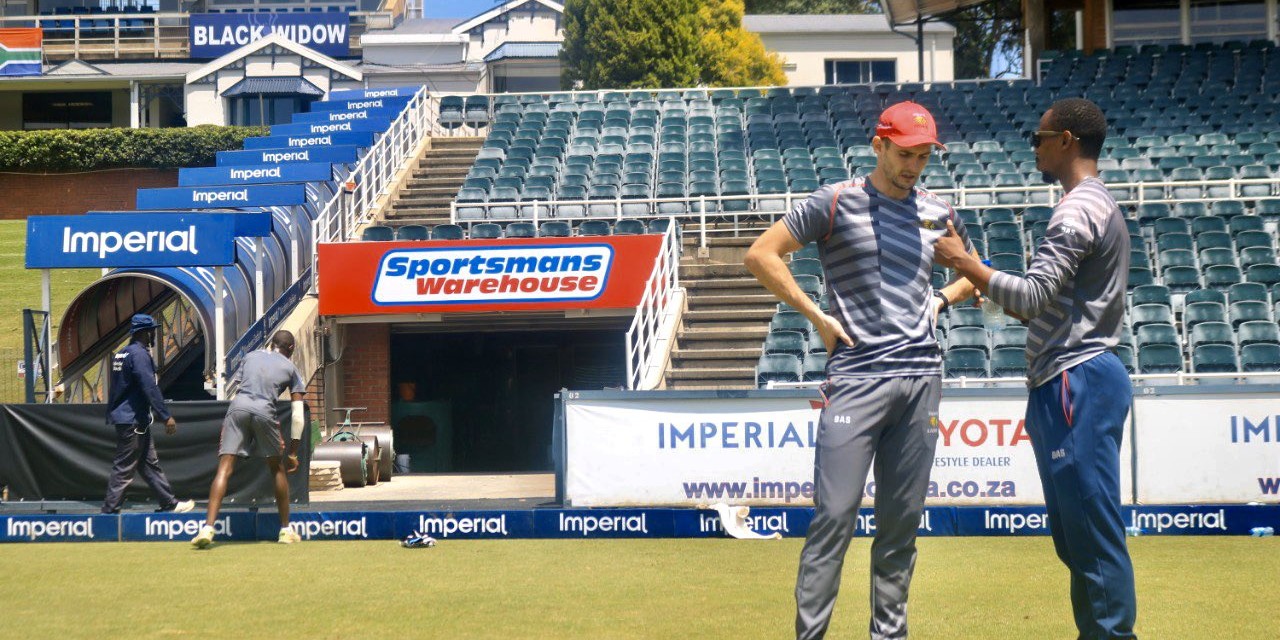
“WE LOOKED FOR X-FACTOR” – WANDILE GWAVU ON LIONS SIGNINGS
By Ongama Gcwabe
The art of traditional fast bowling has been on a downward spiral in franchise cricket which led Wandile Gwavu, the Imperial Lions coach, on a quest to boost his fast bowling department.
There’s been a lot of interesting transfers in franchise cricket recently, but none more interesting than the Lions’ signings which include the exciting Lutho Sipamla, Wesley Marshall, and the experienced duo of Sisanda Magala and Tladi Bokako.
READ: Major transfer moves at franchise level
Lions Head Coach, Wandile Gwavu, explained extensively why he went for these players.
“I struggled at some point,” said Gwavu exclusively to Cricket Fanatics Magazine. “Especially in the 4-Day competition with the seamers. It’s vitally important that you’ve got a really good back up with your seamers.
“You normally have a lot of batters especially in the Highveld, the guys are used to scoring runs. So it’s normally easier to take guys from senior provincial and give them an opportunity at this level but to get quality seamers is normally a big challenge.”
Just one look at the transfer list, you quickly realise that most of those guys are seamers or fast bowlers. To be exact, 15 of the 19 transfers were fast bowlers or seamer all-rounders which tells the narrative that franchises were looking to strengthen their fast bowling department.
READ: Major transfers at franchise level
“I don’t think it’s only the Lions who had the challenge of looking for good fast bowlers,” said Gwavu.
“I think it’s a national challenge where there’s not a lot of fast bowlers in the country.”
There’s a lot of theories and reasons behind these signings. Gwavu laid down the theories behind his new signings.
“Also, I’ve got a big thing where if we want to dominate in franchise cricket we’ve got to start playing some really good cricket at home,” he continued.
“For me as Head Coach, I’m very big on us dominating our home matches before we can even go out and start winning games away. It’s vitally important that we win games away.
“I think it’s always scary for oppositions to come to the Wanderers and get results because they know that with the bowling attack we have it’s going to be very difficult for them to come here at the Wanders and get results.”
In my opinion, with Marshall, the Easterns and the Titans have lost a player with the potential to be one of the most attacking batsmen in the country.
“With Wesley Marshall, as everybody knows that we’ve lost Wihan Lubbe, I’ve looked at our batting lineup especially in the 50-over competition. The guys did very well, they got runs consistently but I still feel there was always a place for an x-factor player,” said Gwavu.
READ: Wihan Lubbe excited to learn from Robin Peterson at the Warriors
“It’s always important to have that guy in that top four who can take the game away for you and make things easier or better for number five, six and seven. We looked for an x-factor and Wesley Marshall’s got good numbers and has the experience,” he concluded.
READ: Lizaad Williams brings competitive “attitude” to Titans
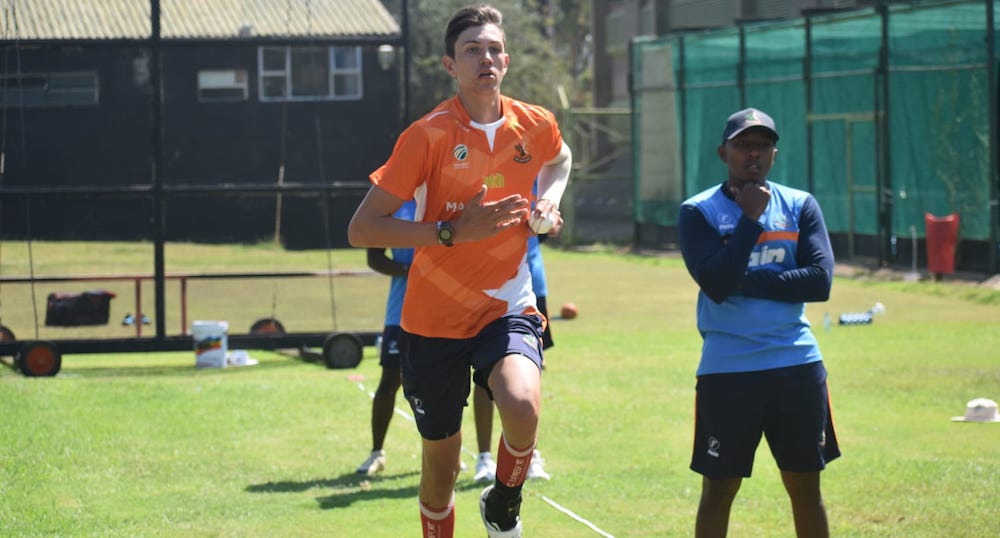
Rising Star: MY BROTHER’S RISE GIVES ME BELIEF – DUAN JANSEN
By Khalid Mohidin
Although Duan Jansen is the twin of the Warriors’ new signing, Marco Jansen, he has his own unique skill and personality he aims to showcase at the Knights.
When you look at the Jansen brothers on paper, and in person, it’s forgivable to assume that they are cut from the same cloth.
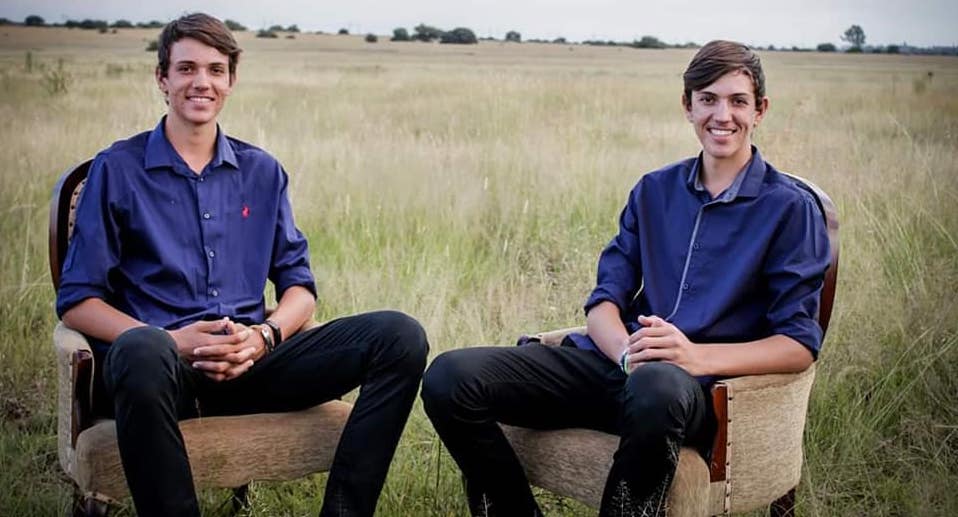
But there is one defining attribute that distinguishes the two apart – their personalities. (Shocker right?)
“Our personalities are totally different,” said Duan exclusively to Cricket Fanatics Magazine.
“I like to take more risks on the field where my brother would think twice about the options that he has available to him.
“I think it’s gonna be a nice challenge for the both of us because we know each other’s strengths and weaknesses.
“So in saying that, he will just have to watch out for the bouncer,” he joked.
Having signed a contract with the Knights, it’s an exciting opportunity for the youngster to make his mark.
He has been a consistent performer for Free State over the last few months and his transition has been more reserved than his brother’s meteoric rise.
ALSO READ: THE RISE OF MARCO JANSEN
Duan shared his excitement of becoming a Knights player, and what his aims and goals are for his new venture.
“I’m very excited for the journey ahead and looking forward to work in a professional environment, learning new things that can help me in my career going forward,” he said.
“I’m looking forward to working with Allan Donald and learning from the experience that he had on the field.
“From a player’s perspective, I have to say I’m keen to play alongside Patrick Kruger.
“With my brother’s rise in his short career, it helped me believe that anything can happen in a short amount of time and it also gave me the confidence to believe that I can also play cricket at the highest level.
“My goal for the next season is not only to play at the franchise level but to compete and try to dominate some aspects of the game.
“My aspirations are the same as any other South African cricketer – I’d love to play for my country someday.”
Advertisement
Ezra Poole's Online Wicketkeeping Academy
Learn how to Master The Craft of Wicketkeeping Without Having to Hire a Full-Time Personal Coach.
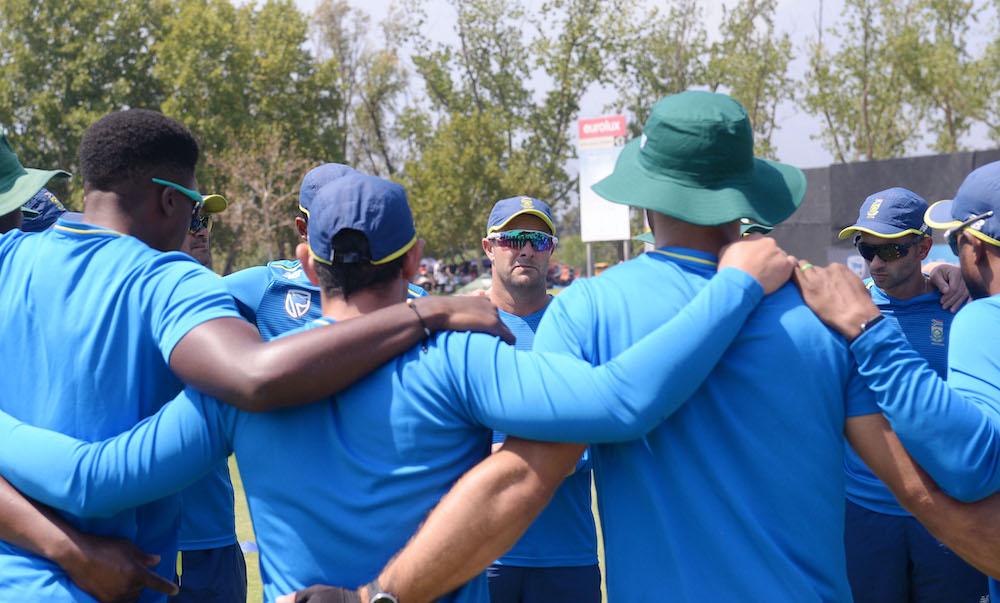
REKINDLING PROTEA FIRE: NEW LEASE OF LIFE FOR PROTEAS
By Chris Chiwanza
"Beware of a wounded buffalo, especially in Africa," Mark Boucher issued a warning to everyone who was entertaining thoughts of South Africa as a pushover ahead of the series against England that kicked off in December 2019.
It was fighting talk. If the Proteas were going to reassert themselves as a powerhouse, they had to fight.
Plagued by several problems from injuries to retirements of top performers, it often looked like the Proteas had no more fight left in them.
And following the appointment of Director of Cricket Graeme Smith who brought in Boucher, the former Titans coach was tasked him with the duty of turning the ship around.
Everyone agreed that it was not going to be an easy job; the Proteas were coming off one of the worst slumps they had ever had, and despite having talent within their ranks, belief seemed low.
To complicate things further, the turnaround coincided with the team's transition. A changeover had to happen, but it had to be done with care and caution.
Fast forward to nine months later, and things have changed. They are no longer a team in transition, they are now a team starting afresh, thanks to the forced break as a result of the Covid-19 pandemic.
The extra time has provided everyone involved not just more time to steer the ship around, but to press the restart button. More time to analyse and find the best way forward.
Vincent Barnes, the South Africa High-Performance bowling lead agrees with this view.
"Although it had been a frustrating period for all of us involved in the game, the break has had some positives, especially for our fast bowlers," Vincent Barnes shared exclusively with Cricket Fanatics Magazine.
"The enforced break has allowed some of the bowlers with injuries time to recover. And it has also allowed us to assess the bowler's actions biomechanically and plot the way forward to ensure that we can keep them on the park for as long as possible.
"The break has also allowed bowlers to strengthen up and work on their fitness. Some of the bowlers have used this time to tweak a few technical aspects of their actions."
In a normal season, players and those around them, seek to find the best ways to facilitate healing and a quick return to health in times of injury.
So much so that sometimes players are unwilling to stay off-field for too long, that they rush themselves back to competing. But with this extended break, bodies have had more time to rest and recuperate.
If Kagiso Rabada and Anrich Nortje's performances in this year's IPL are anything to go by, then they truly are reaping the benefits of the break. They are bowling faster than most of us can remember, and very much on target too.
If anyone remembers, in early 2019, Kagiso Rabada confessed to feeling that he was operating at 60%. The difference between that version of Rabada is markedly different from the one we see.
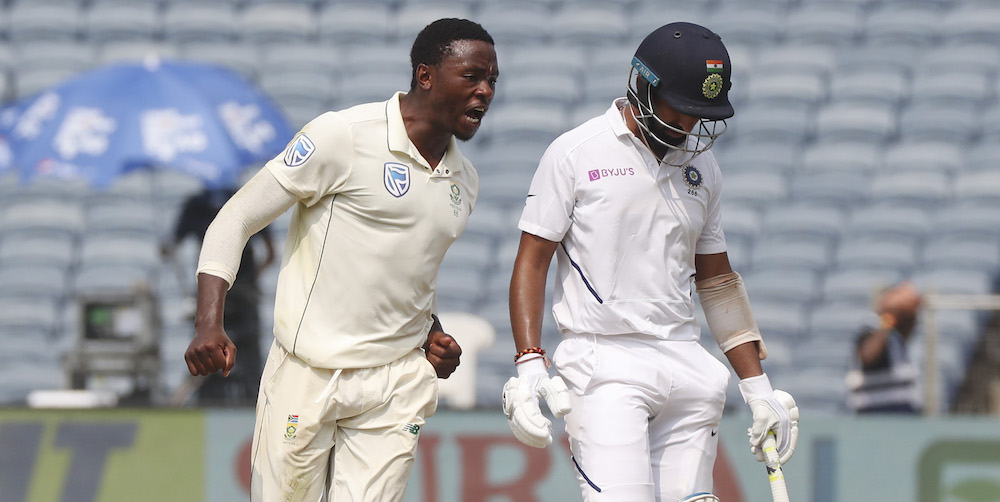
But the physical is not the only area where players have benefited from the 9-month break.
A lot of times when a player is not doing well, when they are going through a tough, dry spell, the advice they are given is to spend more time in the middle to get confidence back.
A player is always thought to be one knock away from rediscovering form. It is a valid assertion, as numerous examples eventually found their way back after such barren periods.
The same is true for teams. Sometimes a team is just one victory away from rediscovering their spark.
However, sometimes that is not so. The more persistent a dry spell is, the more a team is likely to suffer further declines in team efficacy.
The more doubt players have in their ability as a unit, the harder it becomes to turn the tide.
As Cape Cobras coach, Ashwell Prince said: "Sport at the highest level is also mentally very demanding, even draining at times, and the break has also allowed people to come back mentally refreshed."
After the difficult period that the Test side endured, everyone involved in the Proteas set up has had time away "from the madding crowd" of expectant fans and the vagaries and demands of top-flight competition.
They calmly reassessed and planned, to refresh and press the restart button.
"With so much time on our hands, it’s given everyone a great opportunity to do some reflection and introspection, both for coaches as well as players," Prince goes on.
"It has also afforded everyone an opportunity for personal development. Online courses during lockdown have given us all an opportunity to enrol, and enhance and grow our skill sets, in this case, more of the soft skills development."
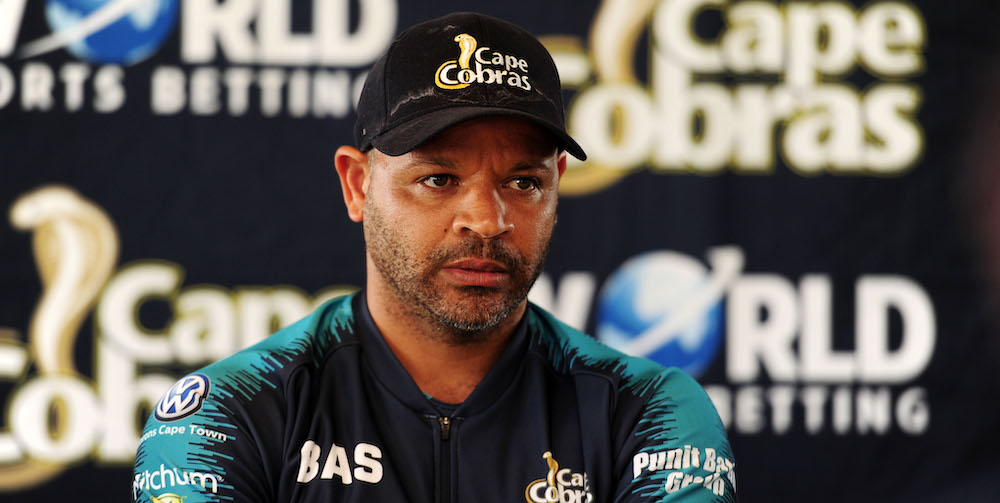
"Sometimes people forget that chasing something for a long time does things to a person," footballer Ian Wright wrote in an article where he spoke of his struggles to become a professional football player.
The same is true about extended slumps. They cease to be a part of the regular ebbs and flows of competition that we know and accept, they become a part of their identity.
They become more jaded and accepting of their team's fate. Culture erodes, and it becomes much much more difficult to turn the ship around.
Therefore, just like how individuals might need some time away from the game, teams do need that too before they roll their sleeves to rebuild and restore.
As cliche, as it may sound, with refreshed minds, have more intent and purpose. Time away allowed players to fall in love with the game again.
Instead of walking out into the middle to fulfil duties and contracts, they come back reinvigorated and eager to play, eager to enjoy themselves in a sport they love.
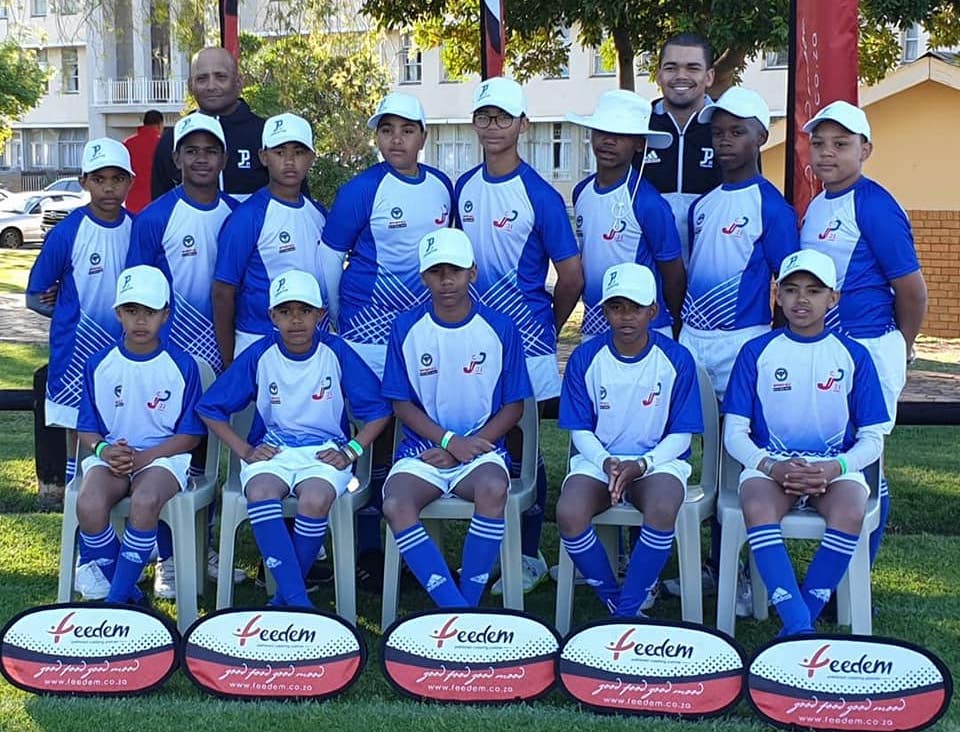
Off the Field: Keanan Mitchell
By Nabeelah Fakier
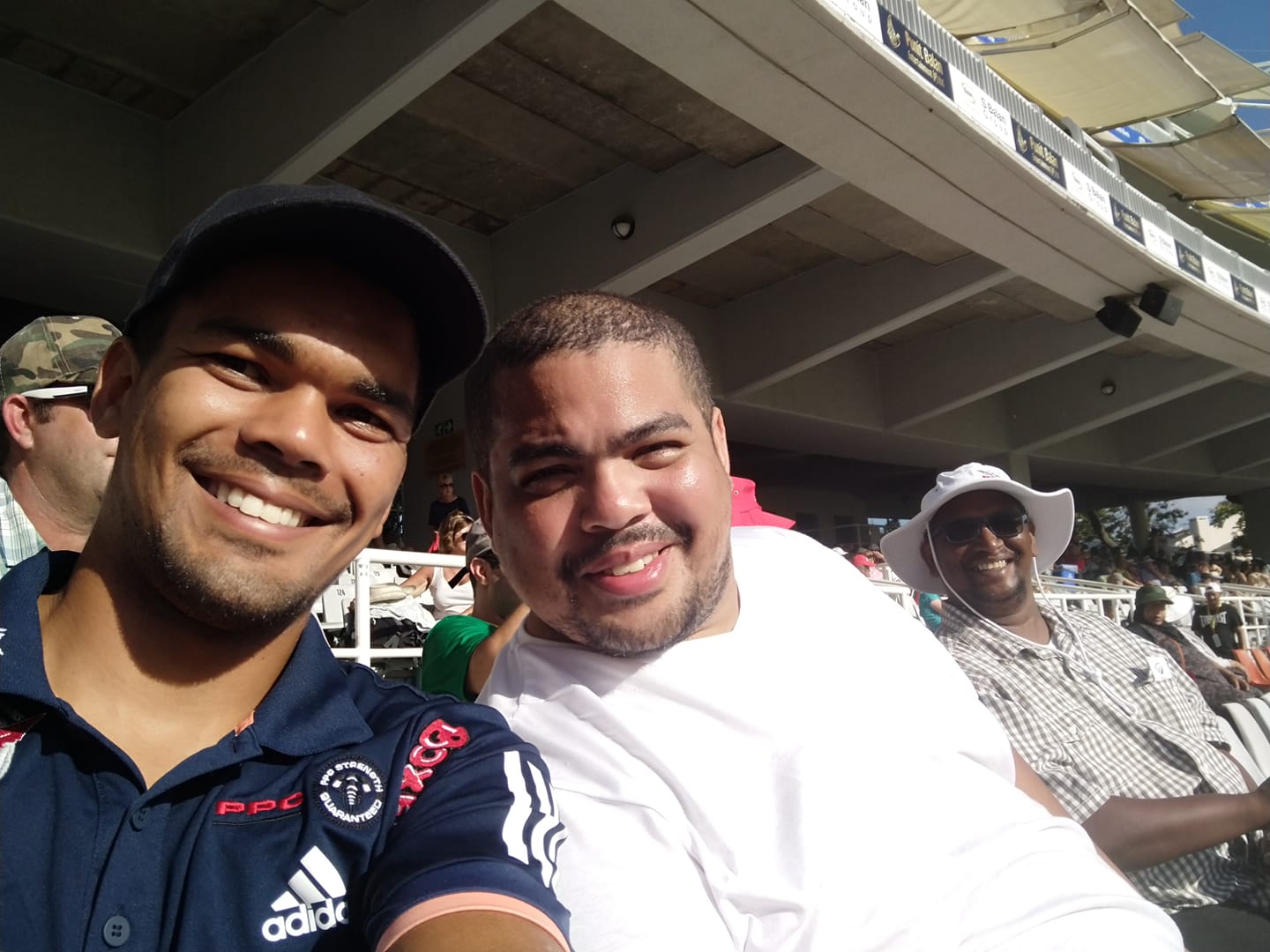
At what age did you first start playing cricket and where did your love for the game stem from?
I started playing cricket at the age of 6. My older brother was a big influence on my introduction to the game. My parents supported the both of us. I was always around cricketers and I learned a lot from that experience.
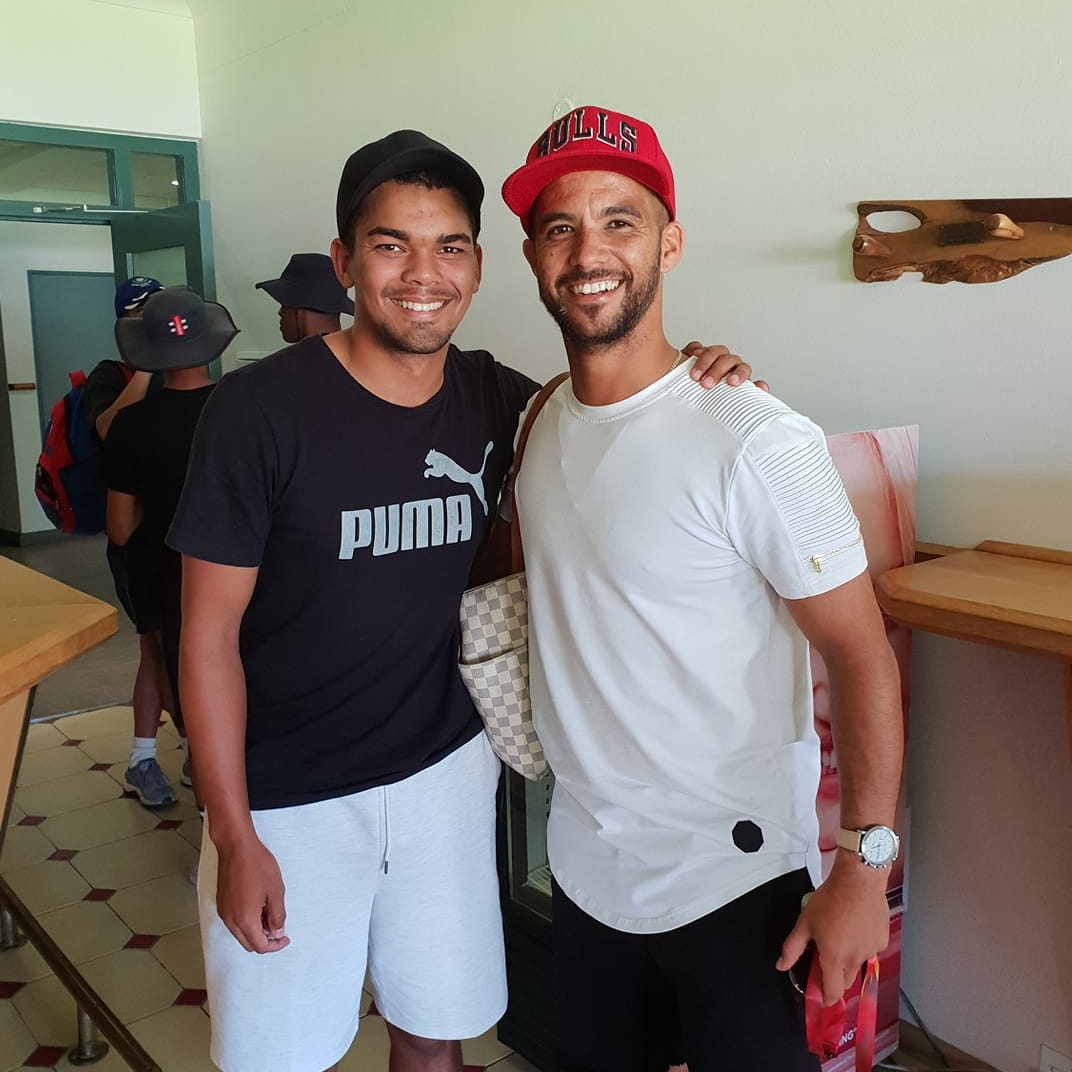
How did you become the head coach of the JP21 Foundation?
In 2015 when the foundation started, I sent JP a message asking if there is a job for me, unfortunately, there wasn't at the time. In 2018 I got a call from Jamaine Cloete (best boss ever!), JP's agent, who approached me to work for the foundation and the rest was history.
What’s your dream ground to play on?
Always Newlands! and I was fortunate enough to play a game at the amazing ground 2 years ago in a T20 final!

If you weren’t involved in cricket, which career path would you be on?
Something in sports haha! Love playing hockey as well, but I think working with kids! There's nothing more rewarding than that.
What’s your favourite take-out place in Cape Town?
I Love McDonald's! Wajid's in Strandfontein as well!
Where did you have your first date with your girlfriend?
9 miles beach in Strandfontein lol.
Who is the toughest batsman and bowler you’ve ever faced?
Batsman: I'd say, Grant Edmeades quality batsman always made runs against us.
Bowler: I'd say Chad Fortune and Brendon Young. They made me jump a few times.
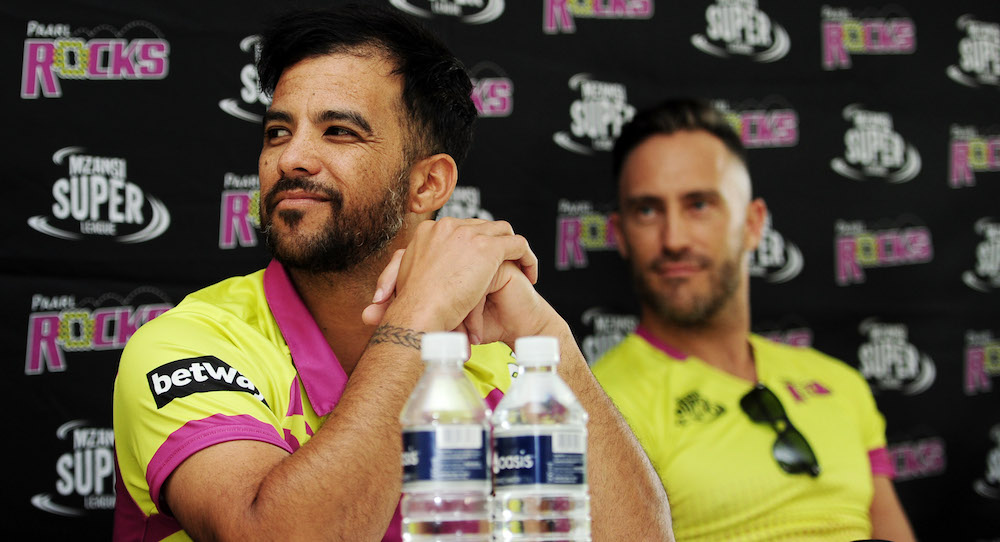
JP Duminy
Do you get asked often about JP?
Yes, way too often haha.
If you were stuck on a desert island, and you only had 3 things with you, what would it be?
Cellphone, power bank and toothbrush.
When a lockdown is over, what’s the first thing you’d do?
Go and watch some cricket at Newlands!
What’s your pet peeve?
Arrogance.
If you were a character in Dragon Ball Z, who would you be?
I would be Goku.

How important is grassroots-level cricket?
It’s very important! Those who are at the top now would not have been where they are today without starting at a grassroots level.
What do you think is needed at grassroots levels and CSA overall to spark the next generation of cricketers?
Many would say the funding, but I think time and dedication from coaches to get the best out of a child. The investment from the top to ensure facilities and the environments are durable for a child to succeed.
Who are you backing in the IPL?
Mumbai Indians
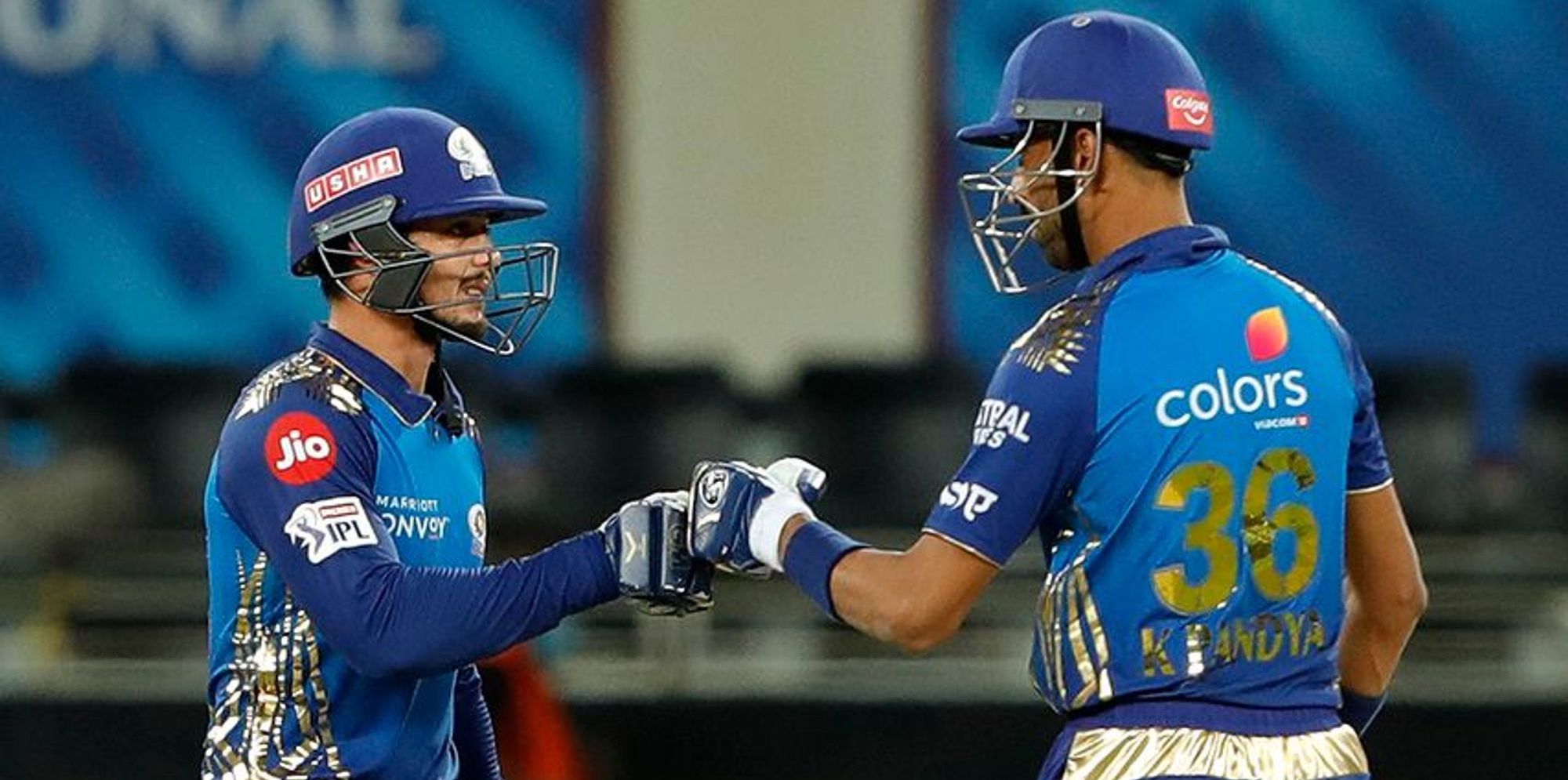
What are your goals for the upcoming season?
For JP21, I want to expose more kids to the game of cricket and help them climb the ladder to a Western Province level.
At Club level, I want to help the team gain promotion.
At a senior CPL level, avoid the wooden spoon!
At a Junior CPL level, I want to successfully defend our title!
What’s your favourite slang words?
Yasis! Yarra! Mybruuu!
What’s your favourite movie of all time?
Stepbrothers! Quality movie.
Who is your favourite cricketer of all time?
None other than JP Duminy.
What’s the quote you always live by?
“Aspire to inspire before you expire." This is something I’d like to achieve going forward.

THE GREAT DEBATE: THE IMPACT OF RETURNING KOLPAKS
Daniel Orsmond and Ravi Reddy give their opinions on the debate regarding the return of Kolpak players.
DAN’S VIEW
I believe that the return of Kolpak players to the South African cricket system will undoubtedly improve the performances of our national side, but probably not in the way some people believe.
Do I think that the majority of Kolpak players would walk into the national side in any of the three formats? No, I don’t.
In fact, I would almost go as far as saying that I believe our Test, ODI and T20 sides will remain largely unchanged should they return.
Having said that, it is my unpopular opinion that our local cricket does not prepare our players for the demands of international cricket sufficiently.
This is not a knock on the current players who work extremely hard, but rather an indication of the effect that a mass exodus of local players has had on South African cricket.
I believe that the return of Kolpak players will improve the performances of the national side.
Not necessary as the result of former Kolpak players returning to the national side directly, but rather by improving the quality of our local cricket which in turn will better prepare our local players for the demands of international cricket.
Having said that, do I believe that the likes of Kyle Abbott, Duanne Olivier and Simon Harmer will be able to push for a place in the Test side?
Absolutely I do and the Proteas will undoubtedly benefit from having 6/7 ‘Test level’ bowlers who are available for selection compared to the 3/4 that we currently have.
RAVI’S VIEW
Whether it was Hash resigning from his Test captaincy or Faf shoulder charging an obnoxious Aussie reporter, Proteas fans have become accustomed to drama off the field.
It was in the summer of January 2017. South Africa was playing against Sri Lanka at Newlands and there was drama which unfolded both on and off the field.
One of the most painstaking events was Kyle Abbott’s immediate departure from the Test team. Abbott, along with Rilee Rossouw at the time signed Kolpak deals with Hampshire.
What followed was an unprecedented mass exodus since the summer of 2017.
The predominant challenge with Kolpak players returning to the Test and ODI teams will hinder the existing pool of SA talent.
Currently, our Test bowling line up has an average age of 27 and has improved significantly with each match.
Bringing on veterans will not only discourage our current line up but will also disrupt the momentum gained thus far by our “fearsome 5” (if you insist: Rabada, Ngidi, Nortje, Hendricks and Maharaj).
It’s not all bad though. I will forever remain a massive fan of Kyle Abbott. Abbott signalled his arrival in Test cricket with an impressive 7/29 against Pakistan in Centurion. Despite my reservations of Kolpak players returning to the national fold, he would play a vital role in getting SA back to winning ways. Just Kyle though, nobody else.
Disclaimer: Cricket Fanatics Magazine encourages freedom of speech and the expression of diverse views from fans. The views of this article published on cricketfanaticsmag.com are therefore the writer’s own and do not necessarily represent the views of the Cricket Fanatics Magazine team.
unlocked SERIES: "I made a good decision to move to the Titans"
Henry Davids "Rocks like a Titan" | Legend's with Ravi | Episode 14
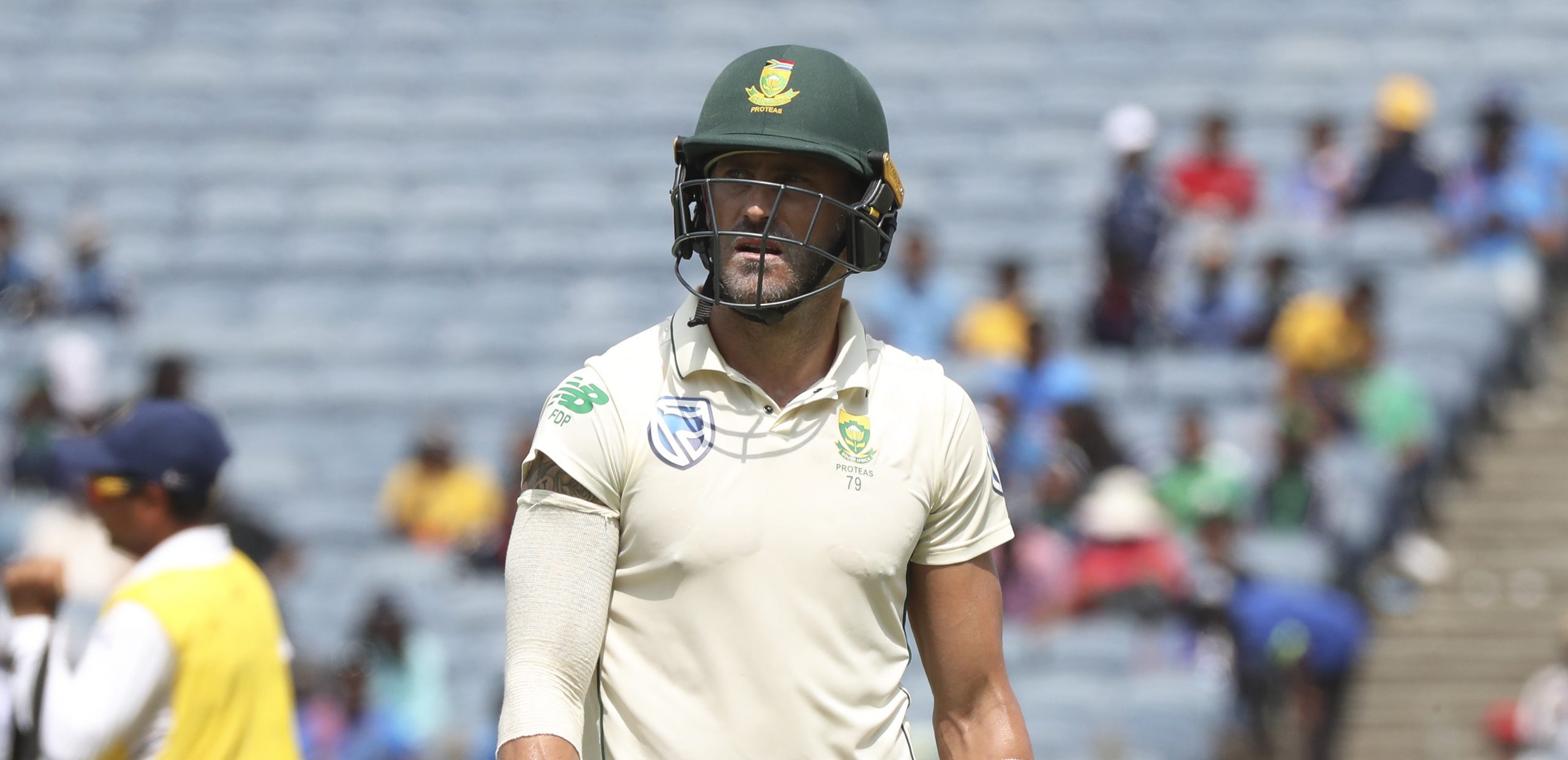
“IN CRICKET, YOU FAIL A LOT MORE THAN YOU SUCCEED” – FAF DU PLESSIS
By Aditya Mehta
Former South African cricket captain, Faf du Plessis, was at his eloquent best in a webinar on leadership organized by the South African Business Council in the United Arab Emirates, writes Aditya Mehta.
“In cricket, you fail a lot more than you succeed. A big part of my captaincy was dealing with failure. It’s about how you come back.”
Du Plessis discussed a vast array of topics consisting of his time as captain of South Africa, the toughest challenges in his tenure as captain of South Africa, playing for the Chennai Super Kings (CSK) and their performance in this season of the Indian Premier League, and the importance of working towards better mental health.
Faf du Plessis has always relished leadership responsibilities. While Du Plessis believes he is a “decent player,” he is driven by the challenge of leading a cricket team.
Having captained cricket teams from a young age, leadership has been central to du Plessis’ identity and that is when he has enjoyed his cricket the most.
In 2011, he was recruited by CSK, with MS Dhoni (captain) and Stephen Fleming (coach) at the helm of affairs. In his formative years at CSK, Du Plessis made every effort to pick Dhoni and Fleming’s brains, given both were incredibly accomplished captains of their respective national teams.
Du Plessis soon discovered that while he could be inspired by their leadership styles, he had to find his own modus operandi.
He preferred a structured approach to captaincy, but his experience as a player under Dhoni revealed that a calm and instinctive approach, without intense strategising and team meetings, can also produce the desired result.
When Du Plessis was named skipper of the Proteas, one of his priorities was to ensure that the younger players were made to feel comfortable in the dressing room.
Knowing that many of the selected young players would be playing alongside cricketers they grew up admiring, Du Plessis always emphasised, “We’re all equal. Your voice is as important as mine.”
In saying that, he also gave senior players more responsibility. The central tenet of Du Plessis’ captaincy, however, was honesty. “With honesty,” he said, “comes all these different hats.”
On some days, it would mean “putting a shoulder around someone” after a “bad day in the office” because one of his old coaches once said to him, “every player needs love.”
On another day, his honesty would demand more from his players if their preparation was not rigorous enough. Through Du Plessis’ tenure as captain, he had to find a way to deal with failure.
The Proteas’ 2019 World Cup campaign, in particular, hurt him. After dedicating two years to planning for the World Cup, and armed with the knowledge that the batting group was not delivering consistently enough, Du Plessis and the brains trust of the Proteas looked to the bowlers to provide them with a competitive edge.
Unfortunately, the Proteas lost three frontline fast bowlers to injury within the first week of the World Cup, which set the tone for the rest of their tournament. In the aftermath of the World Cup debacle, a number of people told Du Plessis that it was the right time for him to relinquish the captaincy.
While a part of him agreed with the idea, he had always put “South African cricket first and wanted to be true to it” because there was a tough Test tour to India scheduled, and Du Plessis felt duty-bound to lead an inexperienced South African team against a formidable Indian Test team.
The last year of Du Plessis’ captaincy was, undoubtedly, his most challenging. Apart from ensuring that the Proteas performed at the level expected of them, he had to direct a lot of his energy towards managing sensitive matters behind the scenes. Ultimately, Du Plessis got to a point where it felt right to step down from the captaincy.
Calling it the toughest decision of his life, given how passionate he was about leading the Proteas, Du Plessis thought it was wise to let a new coach and captain implement their vision for the team.
Du Plessis has advocated for a better information-sharing structure between captains so that the current captain can learn from his predecessor’s mistakes.
A year into his captaincy, Du Plessis reached out to former South African captain, Graeme Smith, for advice. Similarly, Du Plessis is interested in helping future captains so that they can avoid making the mistakes he made as captain.
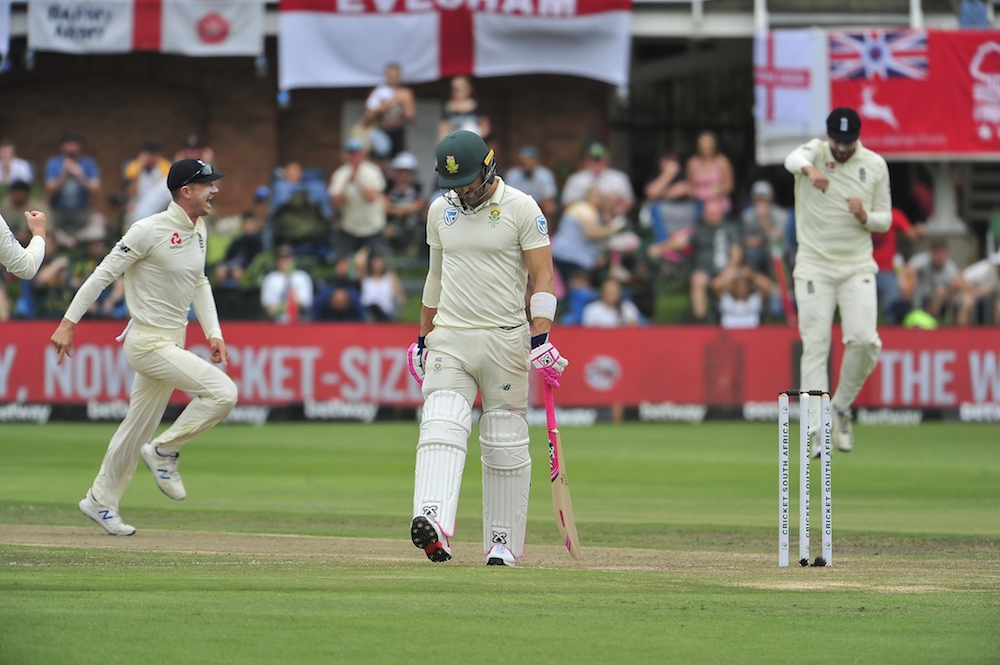
Over the last few years, Du Plessis has paid special attention to his mental health. Cognisant of the fact that all cricketers go through phases of anxiety, fear, and varying levels of depression, he believes it is imperative for cricketers to focus on their mental health.
Du Plessis began working on it by reflecting on his priorities – family, friends, and hobbies such as surfing and mountain biking – and remaining balanced in success and failure.
While n the UAE with the Chennai Super Kings, Du Plessis said that living in a bio-secure bubble presented its own set of challenges, but he was grateful to be playing cricket again.
One of the IPL’s most successful franchises, CSK did not qualify for the playoffs for the first time in IPL history.
Analysing CSK’s inconsistent run this year, Du Plessis attributed the team’s performance primarily to the fact that the team was curated for Chennai’s spinning conditions, and struggled to adapt its skillset to the UAE.
Additionally, the team management had planned for a three-year cycle (2018-20), in which CSK won the title in 2018 and were runners-up in 2019.
It was always going to be a challenge for the team to replicate those performances this year, seeing it was an ageing team, with many players coming off very little competitive cricket.
Du Plessis was all praise for CSK’s management for continuing to back their players and making them feel valued.
They have always been consistent in their selections and both, MS Dhoni and Stephen Fleming have remained humble in victory and defeat, encouraging the team to focus more on the process instead of results.
Finally, du Plessis said Jonty Rhodes’ heroics in the field made him fall in love with the game. Jacques Kallis’ batting prowess inspired him to bat in a similar manner. After realising he could not, du Plessis knew he had to find a way to maximise his potential.
In an international career spanning a decade, he found his own method and gave cricket fans across the globe joy of Brobdingnagian proportions through his batting, fielding, and captaincy.
History will be kind to him for the performances he delivered and the players his captaincy nurtured, but Faf du Plessis will be remembered for being the “good person” he always aspired to be.
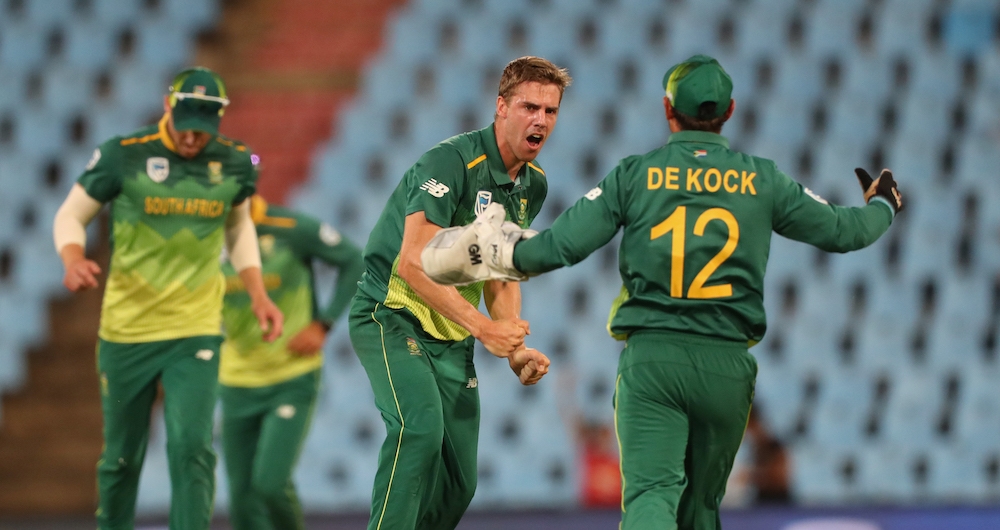
The Rebirth of Protea Fire
By Alasdair Fraser
Even though it’s been a dramatic last month at Cricket South Africa, it’s been a long time coming and now is the time for the solid rebuild that our cricket deserves.
Cricket, in South Africa’s rebirth, has come full circle in just over a year. In late-October 2019, the Proteas returned from a 3-0 Test series drubbing in India. Things on the field were bad, but off the field, it was only beginning to kick off.
A month later, Thabang Moroe revoked the media accreditation of highly respected journalists, three of which were forced to purchase a ticket to get into Newlands for an MSL encounter. It all went pear-shaped from there.
Mark Boucher was appointed as Proteas head coach, as the national side prepared to host England in what was a bumper summer for cricket fans. But the off-the-field shenanigans left a somewhat bitter taste in the mouth.
Fast forward to March and COVID-19 entered the equation. The rest has been a boardroom unravelling – unprecedented since cricket was unified in South Africa post-1991.
But now is the time for a rebuild. We have seen encouraging signs from our premier players in the IPL, and the young talent we have at our disposal is the blinding light at the end of a very dark, long tunnel. The rebirth is just around the corner.
The new members ushered in by Sports Minister, Nathi Mthethwa, in late-October sees a retired judge, a pharmaceutical executive, an election official, a governance expert and a forensic investigator make up the majority of CSA’s new interim board.
More importantly, though, is the return of former ICC and CSA chief executive Haroon Lorgat, whose CV in the game is one of the best.
Professor Andre Odendaal, a highly respected servant of the game in cricketing circles, is a welcome addition to the fruits of Lorgat’s expertise. These men are loyal to cricket.
Omphile Ramela has relinquished his position as president of the South African Cricketers’ Association, to avoid conflict of interest. It is an inspired choice with the 32-year-old having recently been part of the domestic cricketing landscape, while Xolani Vonya, who resigned as president of Eastern Cricket Union, completes a well-balanced board.
Their task?
Clean up our game, investigate the gross maladministration we have seen and provide support structures and frameworks required to successfully maintain and govern cricket in South Africa. All this will need to be done with the speed of a Kagiso Rabada yorker, as this interim board will be in place for the next three months.
This is a big ask because on the field; the Proteas welcome England, Sri Lanka, Australia and Pakistan in the coming months.
First-class cricket is also underway with the first round of fixtures having kicked-off at the beginning of November.
The season of rebirth is officially upon us, and the board desperately needs to establish an open dialogue between stakeholders, sponsors, broadcast media, and more importantly you, the fans.
How we as a nation move forward during these incredibly tough times, will be a true measure of how far South Africa has progressed as a multi-racial society with contrasting cultures. This new interim board has the power to change course and help play a vital part in unifying this great country.
South Africa has immense sporting talent, and that sporting talent needs the right people ensuring management structures on all levels are functioning optimally to harness and unearth the next generation of Hashim Amla, AB de Villiers and Kagiso Rabada.
The boardroom is where that framework begins and there is enough knowledge and experience to implement solutions so that coaches, player officials, scouts and the dedicated unsung heroes on the ground can get on with what they do best in growing our game.
November heralds the official start of our summer of cricket in a post-COVID world, and where there is cricket, there is hope.
Video Playlist
The Podcast Live Show:
Square-Leg Gully Live Show:
Magazine info
Editorial Director
Khalid Mohidin
IT and Technical Director
Faizel Mohidin
Contributors
Abhai Sawkar
Alasdair Fraser
Craig Stirton
Daniel Orsmond
Khalid Mohidin
Marc Jacobson
Naeemah Benjamin
Nabeelah Fakier
Nasri Alexander
Ongama Gcwabe
Ravi Reddy
Graphics
Khalid Mohidin (cover)
Mohammed Hoosain (logo)
Images
BackpagePix
Video Binge List:
On Lockdown Series
The Podcast Show
Legends with Ravi
Daily Show
